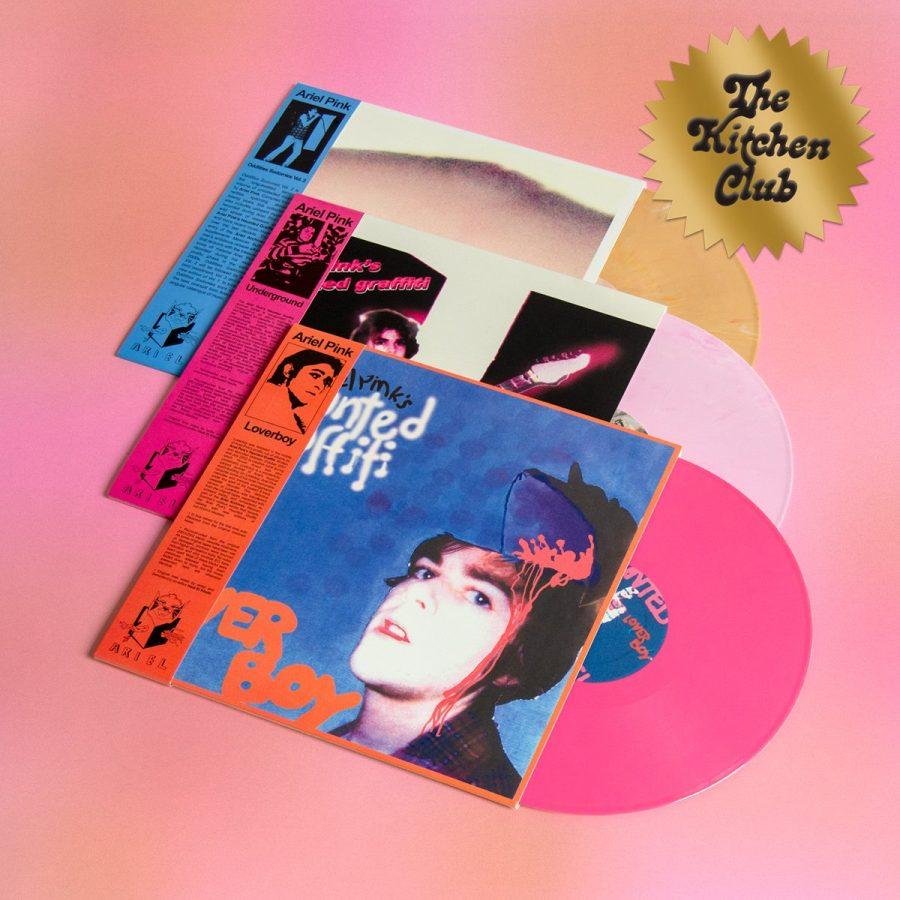Musician Ariel Pink’s fixation with having to constantly reinvent his image has always pointed to him being troubled by the potential constraints of each new persona moments after he debuts it. “Ariel Archives Vol. 1” represents the first of several proposed installments aimed at returning the style of Ariel Pink’s previous persona: Ariel Pink’s Haunted Graffiti. Compiled from a treasure trove of both previously unreleased and renewed rarities in Haunted Graffiti’s repertoire, record label Mexican Summer’s reissue of these tracks grants us access into the subconscious of one of the most enigmatic characters of the music industry today.
“Underground,” the first of three albums he’s remastered and released is exactly what you would expect from a 1999 Ariel Pink album: an anarchistic ode to youthful self-indulgence. It’s a very paradoxical move by Pink to willfully revive and re-explore songs that preach about not looking back or adhering to bygone ideas, but the novelty ends there. Lacking the riveting experimentation that we’ve come to expect of him, “Underground” is by far the worst of the new revivals. Tethered to the repetitive rhythms of an indie rock artist still formulating his style, it plays out in a rather dull manner despite the varied ways Pink tries to spin the same concept over a 22-song tracklist. It’s saddening to witness Pink dig through so many songs merely to repackage an amusing time capsule of a persona that’s been overshadowed by newer ones.
Thankfully, Pink’s retrospective is saved by the particular brand of philosophical-pop driving “Odditties Sodomies Vol. 2,” a collection of previously discarded, off-album tracks that serves as a sequel to the original “Odditties Sodomies Vol. 1” from 2008. Kicking off with a playful pop instrumental and getting increasingly faster over its runtime, you can tell there’s a clear conceptual grandiosity behind the stitched patchwork of the otherwise disparate tracks. Showcasing all the hallmarks of Pink’s trademark style — repetition, warbling and wordplay — “Odditties Sodomies Vol. 2” captures the zeitgeist of Pink’s early career as Haunted Graffiti. The repetition of lines like “Fixed and replaced” in “Stray Here With You” directly clash with his nihilistic claim that “life is life” in “Unwritten Law,” ultimately portraying Pink’s own internal struggle for optimism. His ability to musically hop from one genre to another on a song-to-song basis serves as a manifestation of his obsession with reinvention. There’s a boisterous quality to the way Pink stitches these tracks together, awarding them an unforeseen philosophical spine and relevancy within the greater context of the album. By the end, “Odditties Sodomies Vol. 2” properly revitalizes the haunting echoes of Pink’s previously unreleased tracks, providing his fans with a proper fix of much-needed philosophical pop.
Having explored the thought-provoking dimensions of his past in “Underground” and “Odditties Sodomies Vol. 2,” the last album, 2002’s “Loverboy,” strays from the abstract by choosing to focus on the relatable turbulency of love. Questioning his own failure with intimacy while embarking on a musically psychedelic romp, Ariel Pink provides us with his trademark experimental brand of pop as he critiques marriage, desire and his frustration with society’s inability to openly express love. “Loverboy” stands the test of time and is a fun exploration of a man who longs to love despite not having anyone to love. It ultimately culminates in a maddening seven-minute explosion of frustration rendered as psychedelia in “Phoebus Palast.”
Pink is slated to drop three more of these tri-album releases over the course of 2020. Despite the fact that fans will undoubtedly listen to all of his releases because there is bound to be great material buried in them, it provokes some concern that he’s reached a creative height inhibiting him from evolving artistically. Hopefully some brand-new, original projects from Pink are on the horizon as well.
For the time being, “Ariel Archives Vol. 1” escapes the trappings of nostalgia and stands on its own merits in the modern day, proving a remarkable listen for any fan of avant-garde pop. It revitalizes the haunting echoes of his past by reworking them under a whole new thematic frame that playfully resuscitates the buried poltergeists of Pink’s past.
A version of this article appears in the Monday, Nov. 4, print edition. Email Nicolas Pedrero-Setzer at [email protected].
























































































































































